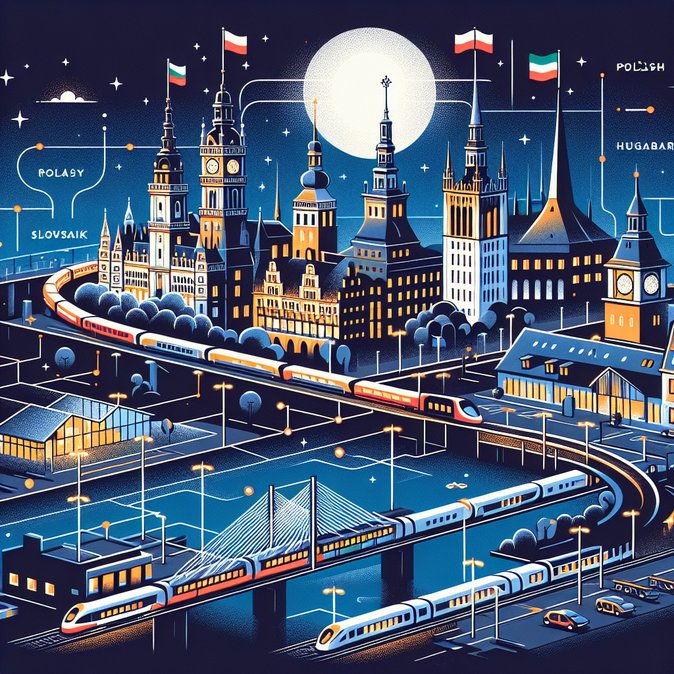
Night-train operator PKP Intercity has unveiled the EuroNight EN Carpatia, a new sleeper service that will knit together Poland, Austria, Slovakia, Hungary, the Czech Republic and southern Germany from the start of the winter timetable on 14 December 2025. Details published on 10 November 2025 show the train will run from Przemyśl on Poland’s eastern border to Munich, with through coaches splitting at Bohumín for direct arrivals in Bratislava and Budapest.
On the Austrian leg the Carpatia will call at Vienna Hbf, Linz and Salzburg, arriving in Munich at 10:24 the following morning. Eastbound, the train departs Munich at 18:45 and reaches Vienna shortly after midnight before continuing to Poland, giving Vienna-based travellers a new overnight option to Kraków, Katowice and the rapidly growing technology hub of Rzeszów. Compartment choices range from seated cars to classic six-berth couchettes and two-berth sleepers with private washrooms, catering to both budget and corporate markets.
![New EuroNight ‘Carpatia’ sleeper train adds overnight link through Vienna]()
The additional service strengthens Vienna’s position as Europe’s pre-eminent night-train hub: ÖBB’s Nightjet network already offers 23 overnight routes, and industry analysts note that rail’s share of sub-800-km business trips out of Vienna has risen from 9 % in 2019 to 17 % in 2025, helped by corporate sustainability mandates and the Austrian Government’s ban on state-funded short-haul flights where a rail alternative under three hours exists.
For mobility managers the Carpatia opens practical rail itineraries for cross-border project teams between Austria and Poland’s manufacturing belt, eliminating hotel nights and complying with Scope 3 emissions targets. Booking will be available via the ÖBB website and global distribution systems used by TMCs, with corporate fares expected to mirror existing Nightjet price points.
Border formalities remain straightforward: as all countries on the route are in Schengen, passports are checked once on board. Travellers should, however, note that the EU Entry-Exit System (EES) for third-country nationals goes live this winter, meaning non-EU business visitors boarding at Vienna may have to register biometric data on first entry before taking the train.
On the Austrian leg the Carpatia will call at Vienna Hbf, Linz and Salzburg, arriving in Munich at 10:24 the following morning. Eastbound, the train departs Munich at 18:45 and reaches Vienna shortly after midnight before continuing to Poland, giving Vienna-based travellers a new overnight option to Kraków, Katowice and the rapidly growing technology hub of Rzeszów. Compartment choices range from seated cars to classic six-berth couchettes and two-berth sleepers with private washrooms, catering to both budget and corporate markets.

The additional service strengthens Vienna’s position as Europe’s pre-eminent night-train hub: ÖBB’s Nightjet network already offers 23 overnight routes, and industry analysts note that rail’s share of sub-800-km business trips out of Vienna has risen from 9 % in 2019 to 17 % in 2025, helped by corporate sustainability mandates and the Austrian Government’s ban on state-funded short-haul flights where a rail alternative under three hours exists.
For mobility managers the Carpatia opens practical rail itineraries for cross-border project teams between Austria and Poland’s manufacturing belt, eliminating hotel nights and complying with Scope 3 emissions targets. Booking will be available via the ÖBB website and global distribution systems used by TMCs, with corporate fares expected to mirror existing Nightjet price points.
Border formalities remain straightforward: as all countries on the route are in Schengen, passports are checked once on board. Travellers should, however, note that the EU Entry-Exit System (EES) for third-country nationals goes live this winter, meaning non-EU business visitors boarding at Vienna may have to register biometric data on first entry before taking the train.






